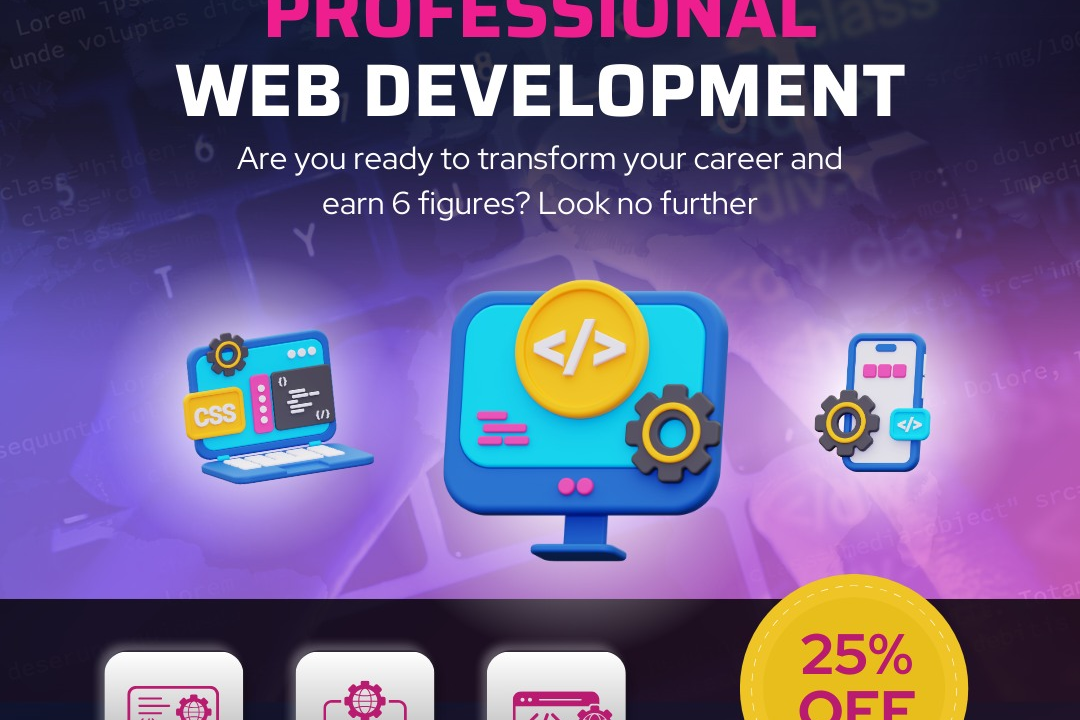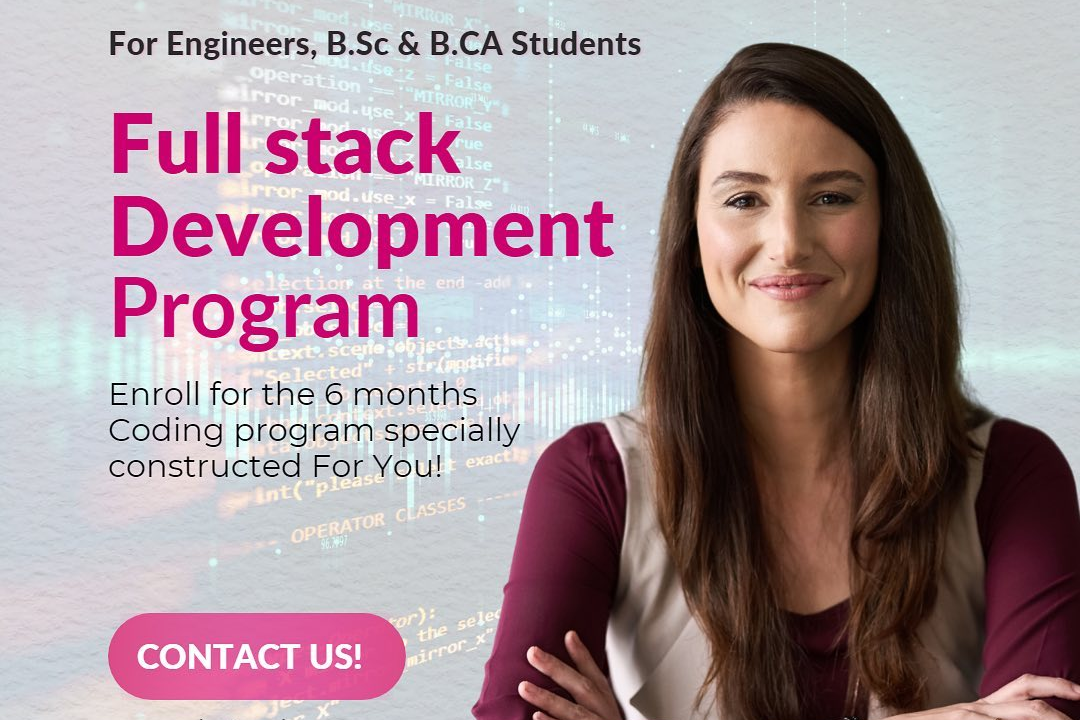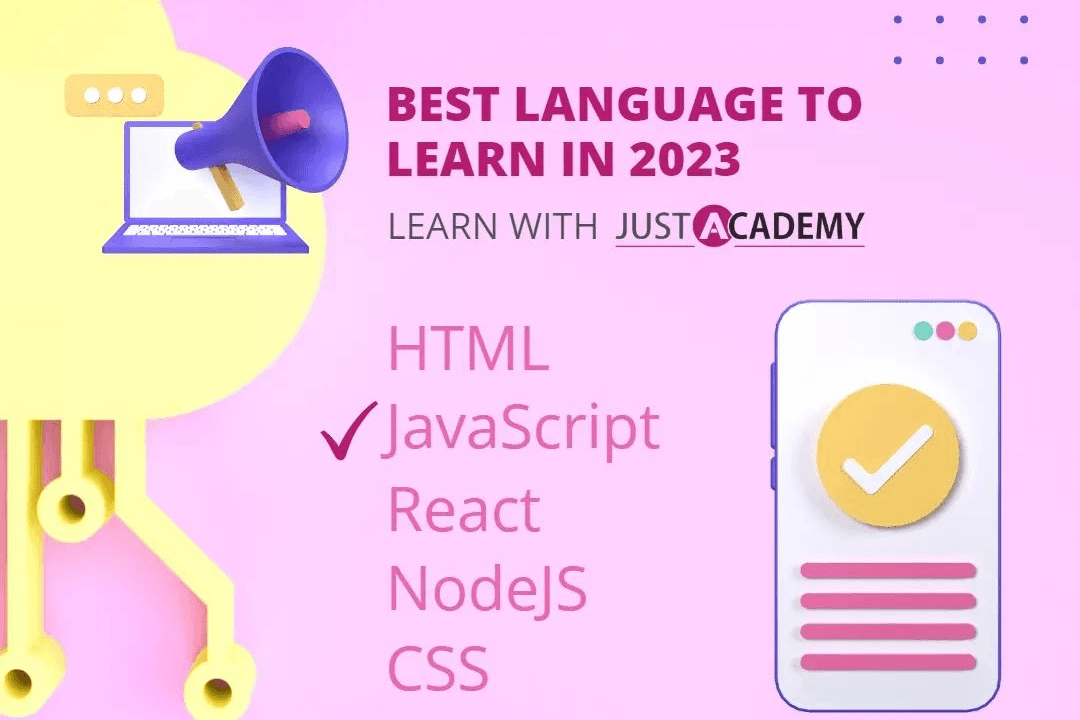Laravel Developer Interview Questions
Comprehensive Interview Guide for Laravel Developers
Laravel Developer Interview Questions
Interview questions for Laravel developers delve into technical proficiency, problem-solving abilities, and project experience to assess candidates' expertise in the popular PHP framework. They help employers evaluate candidates' understanding of Laravel's architecture, features, and best practices, ensuring they can effectively build and maintain robust web applications using this framework.
To Download Our Brochure: https://www.justacademy.co/download-brochure-for-free
Message us for more information: +91 9987184296
1 - MVC in Laravel: MVC (Model View Controller) architecture pattern separates application logic, data access, and presentation concerns, promoting maintainability and flexibility.
2) Eloquent ORM: Laravel's Object Relational Mapping (ORM) tool simplifies database interactions by allowing developers to work with objects instead of raw SQL queries.
3) Blade Templating Engine: Blade provides a powerful templating system for building dynamic and reusable views, simplifying frontend development.
4) Routing in Laravel: Routes define the mapping between URLs and controller actions, enabling the application to respond to user requests appropriately.
5) Middleware in Laravel: Middleware are classes that can intercept HTTP requests before they reach your controllers, allowing for functionality like authentication, caching, and logging.
6) Artisan Command Line Tool: Artisan is a powerful tool for managing database migrations, generating code, and performing various other maintenance tasks from the command line.
7) Authentication and Authorization: Laravel provides robust authentication and authorization mechanisms to secure user access and protect sensitive data.
8) Dependency Injection: Laravel uses dependency injection to manage object dependencies, promoting code reusability and testability.
9) Event System: Laravel's Event system allows developers to subscribe to and broadcast events, facilitating communication between different parts of the application.
10) Testing in Laravel: Laravel's testing framework supports unit, feature, and integration testing, ensuring the reliability and stability of your code.
11 - Queuing System: Laravel's queue system enables asynchronous task processing, improving performance and scalability for long running operations.
12) Blade Components: Blade components allow you to create reusable and modular frontend elements, enhancing code organization and maintainability.
13) API Development: Laravel offers support for API development, making it easy to create RESTful APIs using Eloquent and HTTP middleware.
14) Caching: Laravel's caching mechanisms improve performance by storing frequently accessed data in memory, reducing database queries and server load.
15) Pagination: Laravel provides pagination helpers for easily managing and displaying large datasets in paginated views, enhancing user experience and performance.
Increase Engagement:
- Create valuable content: Offer informative, engaging, and relevant content that resonates with your audience.
- Encourage interactions:* Promote discussions, ask questions, and run polls to foster engagement.
- Use visual and multimedia:* Incorporate images, videos, and interactive elements to make your content more engaging.
- Optimize for Search Engines (SEO):
- Conduct keyword research:* Identify relevant keywords that your audience searches for and incorporate them into your content.
- Build backlinks:* Acquire high quality links from reputable websites to improve your domain authority.
- Optimize page loading speed:* Ensure your website loads quickly to provide a positive user experience.
- Promote Your Content:
- Utilize social media:* Share your content on various social platforms and engage with your followers.
- Run paid advertising campaigns:* Invest in targeted advertisements to reach a wider audience.
- Collaborate with influencers:* Partner with influencers in your niche to promote your content to their following.
- Improve User Experience:
- Provide a clear and intuitive navigation:* Make it easy for users to find what they're looking for.
- Optimize for mobile:* Ensure your website and content are responsive and accessible on all devices.
- Use clear and concise language:* Communicate your message effectively and avoid jargon or technical language.
- Analyze and Adjust:
- Track your analytics:* Monitor metrics like website traffic, engagement, and conversion rates to identify areas for improvement.
- Test and iterate:* Experiment with different strategies and content formats to determine what works best for your audience.
- Stay updated with industry trends:* Keep informed about the latest SEO algorithms, content marketing techniques, and social media platforms to stay competitive.
- Course Overview
- This course covers essential topics for aspiring Laravel developers aiming to excel in job interviews. It includes comprehensive questions and detailed answers on key concepts such as Laravel fundamentals, migrations, controllers, routes, authentication, testing, and deployment. By mastering these questions, candidates can enhance their preparation and confidently demonstrate their skills and knowledge to potential employers.
- Course Description
- Master essential interview questions for Laravel developers and prepare effectively for your next job interview. This course covers key concepts, syntax, and best practices, arming you with the knowledge and confidence to excel in your technical assessment.
- Key Features
- 1 - Comprehensive Tool Coverage: Provides hands-on training with a range of industry-standard testing tools, including Selenium, JIRA, LoadRunner, and TestRail.
- 2) Practical Exercises: Features real-world exercises and case studies to apply tools in various testing scenarios.
- 3) Interactive Learning: Includes interactive sessions with industry experts for personalized feedback and guidance.
- 4) Detailed Tutorials: Offers extensive tutorials and documentation on tool functionalities and best practices.
- 5) Advanced Techniques: Covers both fundamental and advanced techniques for using testing tools effectively.
- 6) Data Visualization: Integrates tools for visualizing test metrics and results, enhancing data interpretation and decision-making.
- 7) Tool Integration: Teaches how to integrate testing tools into the software development lifecycle for streamlined workflows.
- 8) Project-Based Learning: Focuses on project-based learning to build practical skills and create a portfolio of completed tasks.
- 9) Career Support: Provides resources and support for applying learned skills to real-world job scenarios, including resume building and interview preparation.
- 10) Up-to-Date Content: Ensures that course materials reflect the latest industry standards and tool updates.
Benefits of taking our course
Functional Tools
1 - Laravel Framework: A PHP framework specifically designed for web development, known for its simplicity, ease of use, and comprehensive features.
2) Composer: A dependency manager for PHP that automates the installation and management of packages and libraries, ensuring compatibility and consistency within Laravel projects.
3) Artisan: A command line tool included with Laravel that provides various commands for automating tasks, generating code, and managing the project's structure.
4) Blade Templating Engine: A template engine used in Laravel for creating dynamic views, offering features such as conditional rendering, loops, and reusable components.
5) Eloquent ORM: An object relational mapping (ORM) system built into Laravel, allowing developers to interact with databases using expressive, object oriented syntax.
6) Docker: A containerization platform that allows developers to package and deploy applications in a standardized and portable way, ensuring consistent execution across different environments.
7) Test Bench: A tool used for writing unit tests in Laravel, providing an isolated environment for testing specific functionality without interference from other components of the application.
- Participate in Daily Challenges: Complete the daily challenges for a chance to earn bonus points, often in the form of extra spins, coins, or other rewards.
- 2. Join Tournaments: Participate in tournaments against other players to compete for prizes, including bonus points.
- 3. Spin the Wheel of Fortune: Regularly spin the Wheel of Fortune for a chance to win points and other rewards.
- 4. Complete Achievements: Unlock achievements by completing specific tasks or reaching certain milestones, which can reward bonus points.
- 5. Watch Advertisements: Some apps and games offer points for watching video advertisements.
- 6. Invite Friends: Refer friends to the platform and earn bonus points when they join.
- 7. Make In App Purchases: In some cases, purchasing virtual items or premium features can provide bonus points.
- 8. Complete Surveys: Participate in surveys to earn points, typically offered through the app or website.
- 9. Redeem Codes: Look out for promotional codes released by the platform or through partnerships, which can be redeemed for bonus points.
- 10. Loyalty Programs: Join loyalty programs offered by the app or platform to earn points for regular use and engagement.
- 11. Community Participation: Engage in community activities, such as forums or social media groups related to the platform, for a chance to earn bonus points through contests or contributions.
- 12. App Store Promos: Occasionally, app stores may offer promotions or discounts on purchases within apps, which can result in bonus points or higher returns on in app spending.
Browse our course links : https://www.justacademy.co/all-courses
To Join our FREE DEMO Session:
This information is sourced from JustAcademy
Contact Info:
Roshan Chaturvedi
Message us on Whatsapp:
Email id: info@justacademy.co
Flutter For Backend Developers Interview Question












